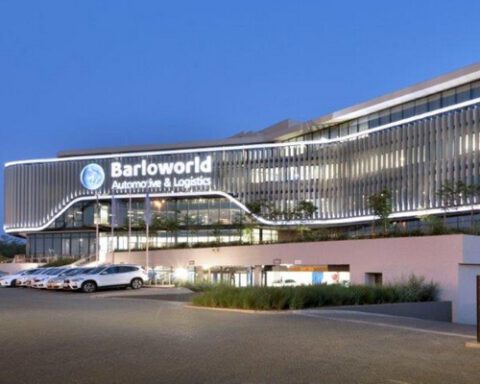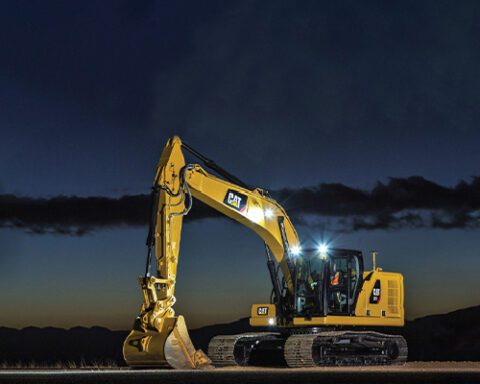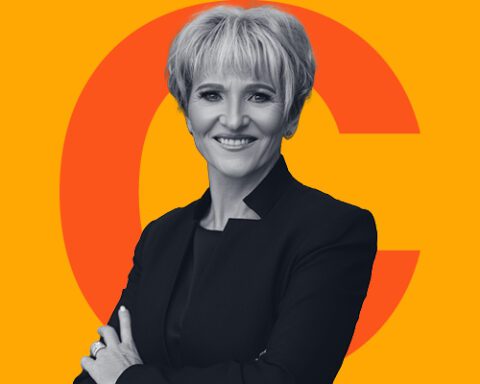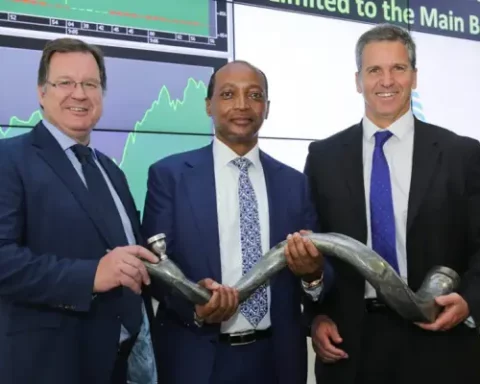Have we just witnessed the very last Barloworld AGM? If the Saudi Arabia-based Zahid Group can persuade UK-based Silchester International Investors, one of Barloworld’s largest shareholders, to accept its R120-a-share offer, Barloworld’s mid-February AGM 2025 will have been it.
But given Silchester’s steady resolve to date, and its stated belief in the long-term prospects of Barloworld, there’s a reasonable chance there will be at least one more general meeting – its 85th – in February 2026.
The company, then called Barlow, was listed in 1941, 39 years after it was founded by Major Ernest Barlow. Its history has covered a wide range of activities, including woollen blankets, heavy vehicles, mining, paint, food, packaging, grocery retailing and cement. At its peak it was, what you might call, a diversified industrial behemoth.
Not so much any more.
But with employee numbers at about 20,000 and annual turnover of about $2bn, it is still quite substantial, though it’s set to get swallowed up by a group with just 5,000 employees and annual turnover of $1bn.
For Barlow, everything began to change in the early 90s – shortly after Margaret Thatcher addressed the South African business community at Barlow Park in Sandton and shortly before the ANC won the first ever democratic elections. It was around this time that Barlow Rand decided to unbundle most of its major subsidiaries.
It wasn’t just about politics; by the 90s conglomerates were no longer fashionable in the business world. And so, companies such as Nampak, Tiger, Reunert, Spar and PPC were spun out of the behemoth. A decade or so later Oceana was unbundled out of Tiger.
They’ve all been through fairly tough times, and none currently enjoys the sort of dominant market position once held in the old South Africa. Many have just about survived existential threats.
And all have their AGMs in the first few months of the calendar year, so it is what you might call Barlow AGM season.
Time for a change?
Nampak, which was dealt with a few weeks ago, secured a top-level AGM rating but was let down by its unengaged shareholders. Having come through so much, it deserved better from them.
Sad to say, Currency was only able to attend three of the other AGMs: Tiger Brands, Spar and Barloworld. We did try to attend Oceana but that was one of those quaint in-person-only events so we weren’t able to find out if any of the shareholders engaged with the board on the prickly issue of its very long-serving chair Mustaq Brey.
Brey was up for re-election at this year’s AGM and Active Shareholder, which provides proxy voting advice for a group of NGOs, wasn’t at all happy. He has the necessary skills but he’s been on the board for 29 years, Active told Currency. Time for him to go.
And it turns out Active wasn’t the only concerned shareholder: a hefty 23% of shareholders voted against Brey’s re-election. To put that in context, only 5% voted against the company’s remuneration policy.
Hopefully Oceana will have sorted out a hybrid facility for next year’s AGM – and have plans for a new chair.
A cramped affair
Tiger Brands provided a hybrid offering, which might have been more effective, if it didn’t look as though it was being held in a rather large biscuit box. All that the website attendees could see throughout the 47-minute meeting was four directors sitting cramped around a table. Once or twice one of the directors was replaced for the reading of one or other of the resolutions. That sounds straightforward enough but given the tightness of the space turned out to be quite a strenuous exercise.
Still, it was infinitely better than former stablemate Oceana.
For providing a hybrid option Tiger Brands gets 20 out of 20 points.
For ease of access it gets five points out of five.
For quality of the video feed Tiger Brands gets just 10 points out of 20, which is quite generous given the video was trained on the chair throughout the entire meeting. It had the eerie feeling of one of those webcast Irish funerals where only the coffin and priest can ever be seen with no sign of the hundreds of mourners – or in this case, handful of officials – in attendance.
Tiger Brands gets 10 out of 10 points for enabling shareholders to ask written or verbal questions. Sadly, there were absolutely no questions from shareholders, so that category is scrapped. The absence of questions was particularly disappointing given that the board had withdrawn the special resolution dealing with an amendment to the memorandum of incorporation. Currency was unable to track down that amendment and the notice of AGM had disappeared from the company’s website.
Finally, it gets zero out of a possible 10 points for forcing shareholders to contact the company secretary if they want to inspect the minutes of the previous year’s AGM. This takes its total to 45 points out of a possible 65.
Top of the log
Then there was Spar, which, without doubt, has presented the best AGM on the JSE so far. This grocery warehousing and distribution business is going through a fairly torrid time, so it’s really encouraging to see how well it manages things over which it does have control. It was helped by the involvement of engaged shareholders who ensured the meeting was chock full of useful information as well as insights into how effective the executives are. It does make you wonder, yet again, why more investors aren’t turning up for these meetings.
Spar gets 20 out of 20 points for providing a hybrid facility. A further five out of five for ease of access. It gets just 15 points out of a possible 20 for quality of video feed because the camera was too focused on just four board members throughout. This was not only frustrating but a missed opportunity to give exposure to its new board members.
It gets 10 out of 10 for ease of asking questions and 20 out of 20 for the manner in which the questions were answered and allowed to flow. And finally, 10 out of 10 for access to the minutes of the AGM giving it a total of 80 out of a possible 85.
Last gasp?
And then there was Barloworld. Well, it’s hard not to conclude that if there isn’t an 85th AGM, we won’t be missing much.
Four grim people at a table. For those attending online it was impossible to know if there was anyone else in the room. It was over in 29 minutes, which was a bit of a relief.
Barloworld gets 20 points out of 20 for providing a hybrid option and an additional five out of five for ease of access. Things go a bit pear shaped after that. It gets just five out of 20 for quality of the video feed because the camera was trained on the four grim faces. Ten points out of 10 for allowing verbal and written questions, though refusing to answer the only question asked – about transparency around the transaction – on the grounds it was not an appropriate for the AGM meant it got zero out of 20 for the flow of questions.
It also got zero out of 10 for not making the minutes of the meeting publicly available. That is not a Companies Act requirement but it is recommended corporate governance practice.
So, 40 out of a possible 85 for perhaps the last public AGM Barloworld will have.
Sign up to Currency’s weekly newsletters to receive your own bulletin of weekday news and weekend treats. Register here.










